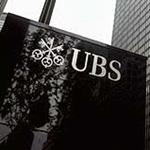UBS trader arrested over ‘rogue deals’
UBS office building in New York (Photo: MonteCarloGenerator/Wiki Commons)
When people talk about the current global economic crisis, one thing you often hear them say is, “The banks got us into this.” Investment banks, that is. Starting with Lehman Brothers and spreading to Europe to banks such UBS that had to be bailed out in 2008 by the Swiss govt. Now one of its traders, Kweku Adoboli, has been arrested for rogue trades that could cost the bank some 2 billion dollars. Swiss citizens on the streets are furious.
An unidentified man on the street says the banks shouldn’t be given the possibility to make transfers of this kind. “It’s just unthinkable. One should have several people overseeing it, checking things,” he says. “It’s too easy to take money — or to simply throw it away like that.”
The unauthorized trades of which UBS employee Adoboli is accused involve what are called Exchange Traded Funds. They are funds closely linked to stocks or commodities and only available to big banks. The trades are perfectly legal, but UBS contends Adoboli didn’t tell them he was making them. That’s not legal.
A Swiss woman expresses her anger saying that while there are people who are dying of hunger and who don’t have work, there are traders who receive super bonuses and they just do anything.
In theory, traders cannot do just anything. Oversight is supposed to have increased in recent years, following other high profile rogue operations. Most notably in 2008, when trader Jerome Kerviel lost $6.7 billion for French bank Societe Generale. But Louise Cooper, from the global brokerage house BGC says in the world of split-second computerized trading, catching a rogue is always difficult.
“Given how many trades there are in the world, you know this looks like only one trader, I think probably what’s happened is that the markets have been hugely volatile over the last two months,” he saus. ” And I think it’s so easy to lose massive amounts of money. Literally in seconds.”
In other words, Adoboli’s big losses got lost in the shuffle. What will likely remain is this latest stain on UBS’s reputation. So says David Jones, the chief market strategist at IG.
“Banks of course are so big now that $2 billion isn’t the end of the world,” he says. “This only will affect their third quarter profits. But it does, once again, shine a light on what may be somewhat lax approaches to internal controls and that don’t do the reputation of any financial institution any good whatsoever.”
By coincidence, the Swiss Parliament began debating tougher banking regulations Thursday. Thursday is also the third anniversary of the fall of Lehman Brothers.
Every day, reporters and producers at The World are hard at work bringing you human-centered news from across the globe. But we can’t do it without you. We need your support to ensure we can continue this work for another year.
Make a gift today, and you’ll help us unlock a matching gift of $67,000!
